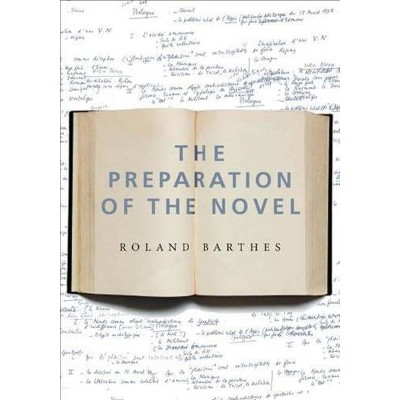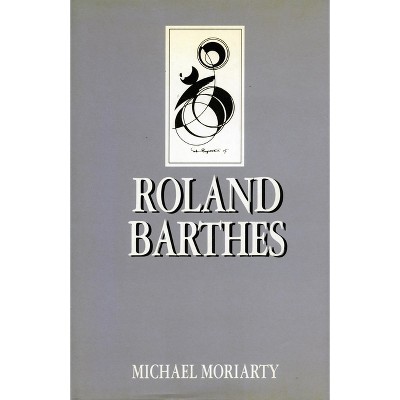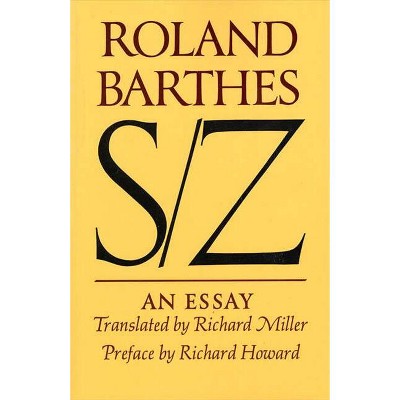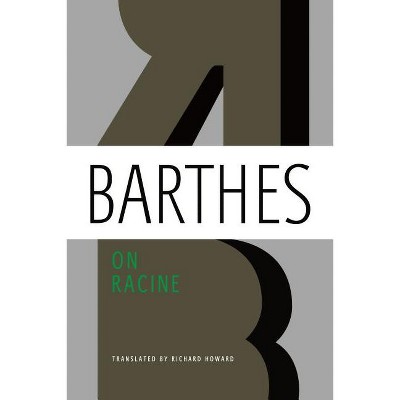The Three Paradoxes of Roland Barthes - by Patrizia Lombardo (Paperback)

About this item
Highlights
- Revolution must of necessity borrow, from what it wants to destroy, the very image of what it wants to possess.
- About the Author: Patrizia Lombardo is a professor at the University of Geneva.
- 184 Pages
- Language + Art + Disciplines, Rhetoric
Description
About the Book
Insisting that his world can best be understood in terms of the paradoxes he perceived in the very activity of writing, Lombardo similarly sees in Barthes the crucial ambiguity that determines the modern writer--an irresistible attraction for something new, different, breaking with the past, yet also an unavoidable scorn for the contemporary world.Book Synopsis
Revolution must of necessity borrow, from what it wants to destroy, the very image of what it wants to possess.--Roland Barthes
In the field of contemporary literary studies, Roland Barthes remains an inestimably influential figure--perhaps more influential in America than in his native France. The Three Paradoxes of Roland Barthes proposes a new method of viewing Barthes's critical enterprise. Patrizia Lombardo, who studied with Barthes, rejects an absolutist or developmental assessment of his career. Insisting that his world can best be understood in terms of the paradoxes he perceived in the very activity of writing, Lombardo similarly sees in Barthes the crucial ambiguity that determines the modern writer--an irresistible attraction for something new, different, breaking with the past, yet also an unavoidable scorn for the contemporary world. Lombardo demonstrates that her mentor's critical endeavor was not a linear progression of thought but was, as Barthes described his work, a romance, a "dance with a pen."Review Quotes
In these days, when certain originally liberating ideas are turning into a stultifying orthodoxy, it is good to be reminded of Roland Barthes. . . . Lombardo shows how Barthes was as fascinated with history as he was with formalism, even though one usually thinks of them as opposites. . . . It is provocative and a worthwhile addition to the literature.
--ChoiceThis is an original, honest and unpretentious study, written by an exmember of Barthes's seminar who manages to convey her passion for his personal and literary style in a way that is sympathique rather than sycophantic.
--French StudiesAbout the Author
Patrizia Lombardo is a professor at the University of Geneva. She is the author of numerous books including "Cities, Words and Images: From Poe to Scorsese."
Shipping details
Return details
Trending Poetry











